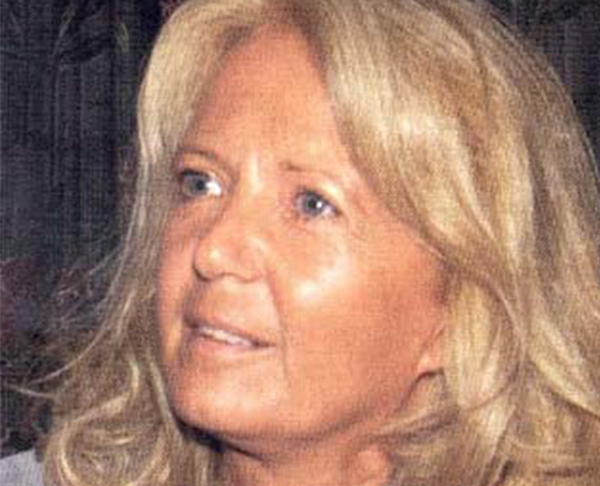APPOINTMENTS, AWARDS and HONORS:
President, Cell Stress Society International (CSSI, USA), 2017-present; Appointed Member Executive Council, CSSI, USA, 2014-present; Member Executive Council, Fondazione Chiara D’Onofrio, 2006-present; Elected EMBO Member, 2000-present; Associate Investigator, IFT (previously INeMM, IMS) CNR, 1989-present; Bellisario Award for Medical Sciences, 2005; Director of Biology, Charterhouse Therapeutics Ltd, Oxford, UK, 1997-2003; Member, Coordination Committee, ESF, Network on Cell Stress Genes and their Protein Products, 1992-2000; Minerva Award for Science, 1994; Visiting Professor, Dept. of Cell Biology, Cornell University Medical School, New York, USA (Italy-USA, CNR Award), 1988; Washington University Committee on Cancer Research Award, 1978. MGS is member of several international scientific societies, and serves as a referee for many international scientific journals.
PUBLICATIONS, PATENTS and FUNDING:
MGS is an author of 3 books, more than 100 publications as first-or-last author in peer-reviewed international journals in cell biology and biochemistry, cancer biology and virology and an inventor of more than 10 international patents granted in the US, Canada and Europe. During her career MGS has been awarded many grants from International agencies (EU and USA, both public and private companies) as well as from National agencies, including several PRIN and FIRB Projects.
CHIEF SCIENTIFIC ACHIEVEMENTS:
Identification of prostanoids as regulators of tumor cell proliferation (Nature 263:777-779, 1976). Discovery of the antiviral activity of cyclopentenone prostanoids (CyPG) (Science 209:1032-1034, 1980). Identification of CyPG as endogenous regulators of the heat shock response (Nature Biotechnol, 16:833-838, 1998). Identification of prostanoids as NF-kB inhibitors (Nature, 403:103-108, 2000). Discovery of the antiviral activity of thiazolides (Lancet, 368:124-129, 2006). Identification of human NKRF as a guardian of nucleolar homeostasis (PNAS, 114:1045-1050, 2017).
CURRENT RESEARCH INTEREST:
The focus of our research is the understanding of the molecular mechanisms regulating the cellular stress response in viral infection and cancer. We are interested in elucidating how viruses control the expression of cellular and viral genes by activating/inactivating stress-regulated cellular transcription factors, with the double objective to characterize at the molecular level the pathogenetic events following the infection and to identify novel targets for antiviral chemotherapy. A major field of interest of our laboratory is the comprehension of the functional role of the stress-regulated pro-inflammatory factor NF-kB in the control of viral infection and cancer cell survival. We have identified a group of natural NF-kB inhibitors, the cyclopentenone prostanoids (CyPG), and have developed a class of synthetic prostanoid mimetics with potent NF-kB inhibitory activity, currently studied in our lab. The study of the non-canonical function of the master regulator of the heat shock response HSF1 is another major interest of our lab. We have recently identified two novel HSF1-target genes, AIRAP and NKRF, and are currently investigating their role in viral infection and cancer. We are particularly interested in elucidating the role of HSF1 in the control of viral mRNA expression and cell survival during infection with RNA viruses, including influenza viruses and rotaviruses. These studies include the investigation of the molecular mechanisms at the basis of the control of the host cell translational apparatus by RNA viruses and the regulation of interferon-like responses. A more recent interest of our lab is the characterization of post-translational modifications of viral proteins. We have recently identified a class of thiazolides able to selectively interfere with specific viral proteins during influenza, parainfluenza and rotavirus infections. These studies have led to the identification of nitazoxanide as a novel anti-influenza drug, acting at a level different than the currently available drugs by selectively blocking the viral hemagglutinin maturation and intracellular trafficking. This drug is actually in a global Phase 3 clinical trial.
Selected Publications:
-
M. Coccia, A. Rossi, A. Riccio, E. Trotta and M.G. Santoro (2017) Human NF-kB Repressing Factor acts as a stress-regulated switch for ribosomal RNA processing and nucleolar homeostasis surveillance. PNAS 114:1045-1050. This article was selected to be highlighted in the Editors’ Choice section of Science Signaling (Sci. Signal. 10, 465. doi: 10.1126/scisignal.aam9083).
-
C. Amici, S. La Frazia, C. Brunelli, M. Balsamo, M. Angelini and M.G. Santoro (2015) Inhibition of viral protein translation by indomethacin in vesicular stomatitis virus infection: role of eIF2a kinase PKR. Cell. Microbiol. 17:1391-1404.
-
G. Belardo, O. Cenciarelli, S. La Frazia, J.F. Rossignol and M.G. Santoro (2015) Synergistic effect of nitazoxanide with neuraminidase inhibitors against influenza A viruses in vitro. Antimicrob. Agents Chemother. 59:1061-1069.
-
A. Rossi, A. Riccio, M. Coccia, E. Trotta, S. La Frazia and M.G. Santoro (2014) The proteasome inhibitor bortezomib is a potent inducer of zinc-finger AN1-type domain 2a gene expression: role of HSF1/HSF2 heterocomplexes. J. Biol. Chem. 289:12705-12715.
-
S. La Frazia, A. Ciucci, F. Arnoldi, M. Coira, P. Gianferretti, M. Angelini, G. Belardo, O. Burrone, J.F. Rossignol and M.G. Santoro (2013) Thiazolides, a new class of antiviral agents effective against rotavirus infection, target viral morphogenesis inhibiting viroplasm formation. J. Virol. 87:11096-11106.
-
C. Brunelli, C. Amici, M. Angelini, C. Fracassi, G. Belardo and M.G. Santoro (2012) The non-steroidal anti-inflammatory drug indomethacin activates the eIF2α kinase PKR, causing a translational block in human colorectal cancer cells. Biochem. J. 443:379-386.
-
A. Rossi, M. Coccia, E. Trotta, M. Angelini and M.G. Santoro (2012) Regulation of cyclooxygenase-2 expression by heat: a novel aspect of heat shock factor 1 function in human cells. PLoS ONE, 7:e31304, 2012.
-
G. Belardo, R. Piva and M.G. Santoro (2010) Heat stress triggers apoptosis by impairing NF-kB survival signalling in malignant B cells. Leukemia, 24:187-196.
-
A. Rossi, E. Trotta, R. Brandi, I. Arisi, M. Coccia and M.G. Santoro (2010) AIRAP, a new human heat shock gene regulated by Heat Shock Factor 1. J. Biol. Chem. 285:13607-13615.
-
A.G. Pockley, S.K. Calderwood and M.G. Santoro (2010) Prokaryotic and Eukaryotic Heat Shock Proteins in Infectious Disease (New York: Springer-Verlag) (Book).
CONTACT INFORMATION:
Prof. M. Gabriella Santoro, Department of Biology, University of Rome Tor Vergata, Via della Ricerca Scientifica, 00133 Rome, Italy;
TEL: +39-06-7259-4822; FAX: +39-06-7259-4821. Email: santoro@uniroma2.it


